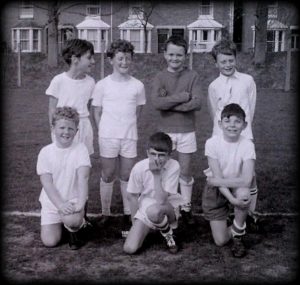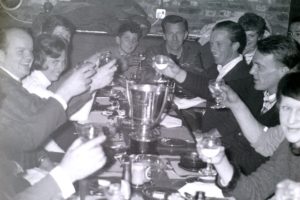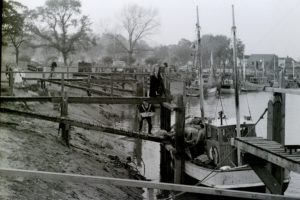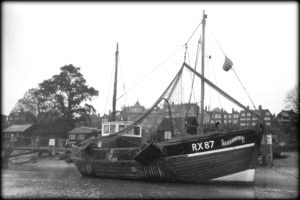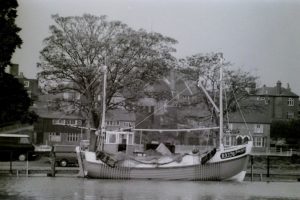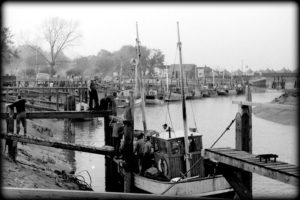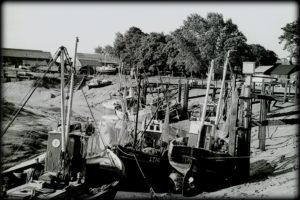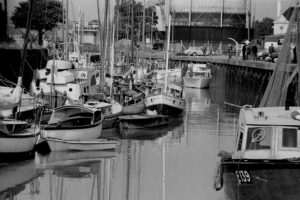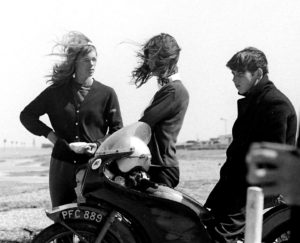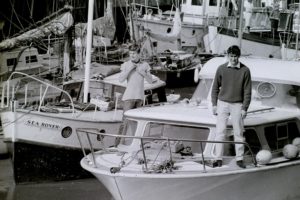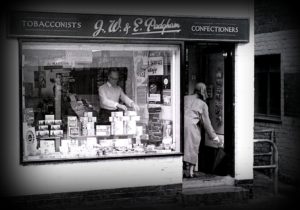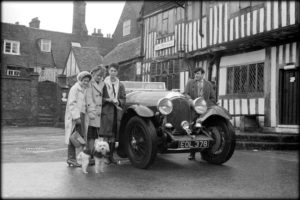The 2025 subscription is available now.
HARD COPY DELIVERED TO YOUR DOOR ANYWHERE IN THE UK. Twenty – Five Pounds per year INTERNET COPY 25.00 pounds anywhere in the World
INTERNET COPY 25.00 pounds anywhere in the World
The 2025 subscription is available now.
HARD COPY DELIVERED TO YOUR DOOR ANYWHERE IN THE UK. Twenty – Five Pounds per year INTERNET COPY 25.00 pounds anywhere in the World
INTERNET COPY 25.00 pounds anywhere in the World

SCOOP FOR CINQUE PORTS
The January 2021 Cinque Ports is available now from selected local newsagents priced at £1.00 only. This issue carries the first installment of the brand new novel by David Weston, using the background of the recently brought to light facts of the ‘Secret Spitfires’ built at Sailsbury in the Second War, as a background to the fictional story that will keep you enthralled for the next seven month. Cinque Ports carries the very first publication of the novel before it is produced in book form.


https://library.myebook.com/CinquePorts/cinque-ports-january-2021/3080/
Cinque Ports is packed with stories, news, information and pictures. £1.00 for Hard Glossy Copy of free on the internet via Cinque Ports Facebook Group

The Winter 2021 issue of Vintage World is packed with good things in spite of there being very little activities, events or shows taking place in these Covid ridden times.
If you are a subscriber your winter issue will be in the post to you by the end of the month – If not do get your £20 on its way to us to ensure you get it and the rest of the 2021 magazines.
Become an active part of the magazine by sending in your stories and memories of the days pre- 1980. Anything to do with Vintage Fashion, Vehicles, Pin-ups, Burlesque, Transport, Music (including retro), Vintage shows and events. Vintage History, stories of heroes from wartime, post war, pre war, twenties, Edwardian, Victorian. Anything you feel would interes our readers
Hard copy glossy magazines by subscription to your door anywhere in the UK £20
On-line version for anywhere in the world £15
Vintage World is a hard copy seasonal magazine. Delivered to your letter box four times a year. Scroll down to subscribe to Vintage World Online edition for £15 a year.
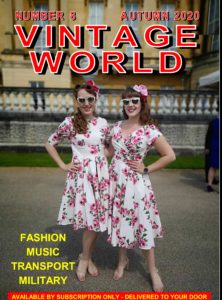
Inland Anywhere in the United Kingdom £20 per year Hard Copy to your letterbox.
Overseas USA, Europe, Australia, New Zealand etc. Hard Copy £40 per year
FIVE BACK ISSUES £20 Hard Copies to your door (U.K. Only)
SIX BACK ISSUES £30 Hard Copies to your door (U.K. Only)

TEN BACK ISSUES 2019 & 2020 (U.K. Only)

Vintage World Online with flip pages and video active pictures. £15 per year to anywhere in the World with internet connection. Order today via Paypal.

Captain Tom Moore reached one hundred and has become an inspiration
to the whole nation after beating Covid19 and raising £30,000,000
for the NHS in a sponsored walk around his garden.
He captured the imagination of people locked down in an effort to
stem the endless list of death that we are reading on a daily basis.
Captain Tom Moore served his country in WW2 in the jungles of Burma,
he saw Spitfires and Hurricanes “Flying in anger” in those dark wartime
days.
Now, in a few short weeks leading up to his 100th. birthday, the veteran
of WW2 has served the nation again, bringing not only a vast thirty
million pound boost to the NHS but a much more valuable commodity
to each and every one of us – optimism, faith and hope that this terrible
invisible enemy can be beaten. He is so convincing and his message
that “Tomorrow will be a good day” has been seized upon by people
who have been so confined and to doctors, nurses and all the essential
workers who have carried on despite personal danger.

Today (30 April 2020) he has been honoured on his birthday by The
Prime Minister, his regiment, who have promoted him to colonel, the
Royal Air Force with a Battle of Britain Fly-past and the MCC who
have made him a member of the English Cricket Team. On his birthday
he also became the oldest person ever to become Number One in the
music charts with Never Walk Alone.
A small connection with Rye – The 150,000 cards that Captain Tom received
for his birthday were sorted at Bedford School. It was to a school
in Bedford that Rye Grammar School was evacuated to in 1940.

Here at Rye’s Own we offer our own congratulations to Colonel Tom
Moore and also congratulate the BBC who have covered the story from
the start in such a dignified way. The BBC have come under a lot of
criticism of late but no one could fault their coverage of Captain
Tom and his families epic fund raising feat.
Jim Hollands
Guinea Hall Lodge – Sellindge – Kent – TN25 6EG Tel. 01303 814874
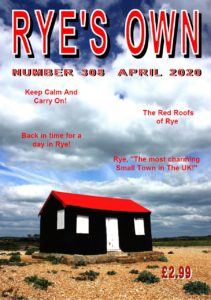
 Subscriptions for Vintage World, Rye’s Own, Cinque Ports & Hastings Town Can be purchased here
Subscriptions for Vintage World, Rye’s Own, Cinque Ports & Hastings Town Can be purchased hereMiss Holiday Swing has featured on the cover of many issues of Cinque Ports Magazines. All can be purchased on annual subscription right here Continue reading Miss Holiday Swing
From these pictures that were taken at various times and are from the
Rye’s Own Archive
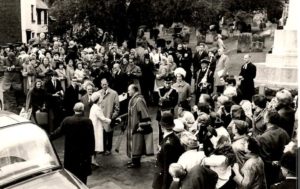 The Victory Sisters
The Victory Sisters 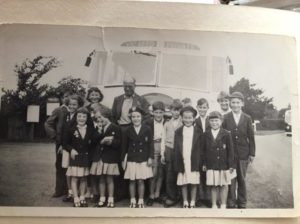



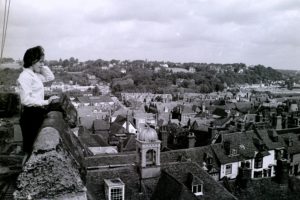 Jive Review
Jive Review 